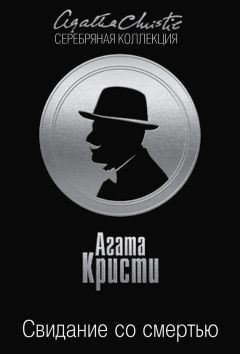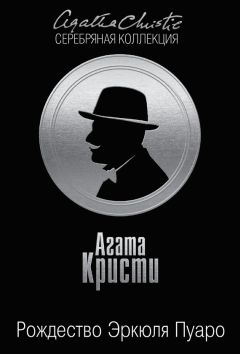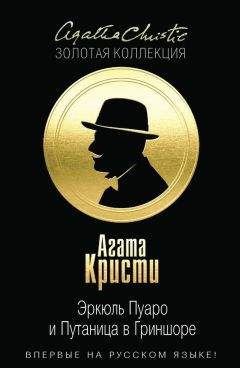Arthur Conan Doyle - Английский язык с Шерлоком Холмсом. Собака Баскервилей
hurry [ˈhʌrɪ], between [bɪˈtwi:n], dissent [dɪˈsent]
I hurried along the road at the top of my speed without seeing anything of Sir Henry, until I came to the point where the moor path branches off. There, fearing that perhaps I had come in the wrong direction after all, I mounted a hill from which I could command a view — the same hill which is cut into the dark quarry. Thence I saw him at once. He was on the moor path, about a quarter of a mile off, and a lady was by his side who could only be Miss Stapleton. It was clear that there was already an understanding between them and that they had met by appointment. They were walking slowly along in deep conversation, and I saw her making quick little movements of her hands as if she were very earnest in what she was saying, while he listened intently, and once or twice shook his head in strong dissent. I stood among the rocks watching them, very much puzzled as to what I should do next.
To follow them and break into their intimate conversation seemed to be an outrage (пойти за ними и вмешаться в их интимный разговор казалось возмутительным поступком), and yet my clear duty was never for an instant (но моей обязанностью было никогда, даже на миг; clear — ясный, четкий) to let him out of my sight (не упускать его из виду). To act the spy upon a friend was a hateful task (действовать, как шпион = шпионить за другом было ненавистной задачей). Still, I could see no better course (и все же я не видел лучшего решения; course — направление; линия поведения) than to observe him from the hill (чем наблюдать за ним с холма), and to clear my conscience by confessing to him afterwards (и после очистить совесть, признавшись ему) what I had done (/в том, что/ я /это/ делал). It is true that if any sudden danger had threatened him (правда, если бы какая-то внезапная опасность угрожала ему) I was too far away to be of use (я был слишком далеко, чтобы быть полезным = чтобы прийти на помощь), and yet I am sure that you will agree with me (но я уверен, вы согласитесь со мной) that the position was very difficult (что положение было очень трудным), and that there was nothing more which I could do (и что ничего более я не мог сделать).
Our friend, Sir Henry, and the lady had halted on the path (наш друг сэр Генри и девушка остановились на тропе) and were standing deeply absorbed in their conversation (и стояли, полностью погруженные в разговор), when I was suddenly aware (когда я вдруг понял) that I was not the only witness of their interview (что я не единственный свидетель их встречи).
outrage [ˈautreɪdʒ], conscience [ˈkɔnʃǝns], halt [hɔ:lt]
To follow them and break into their intimate conversation seemed to be an outrage, and yet my clear duty was never for an instant to let him out of my sight. To act the spy upon a friend was a hateful task. Still, I could see no better course than to observe him from the hill, and to clear my conscience by confessing to him afterwards what I had done. It is true that if any sudden danger had threatened him I was too far away to be of use, and yet I am sure that you will agree with me that the position was very difficult, and that there was nothing more which I could do.
Our friend, Sir Henry, and the lady had halted on the path and were standing deeply absorbed in their conversation, when I was suddenly aware that I was not the only witness of their interview.
A wisp of green floating in the air caught my eye (/краем/ глаза я уловил /какой-то/ зеленый лоскут, плывущий в воздухе), and another glance showed me (приглядевшись, я понял = другой взгляд показал мне) that it was carried on a stick by a man (что его нес на палке /какой-то/ человек) who was moving among the broken ground (идущий по неровной почве: «пересеченной местности»). It was Stapleton with his butterfly-net (это был Стэплтон со своим сачком). He was very much closer to the pair than I was (он был намного ближе к парочке, чем я), and he appeared to be moving in their direction (и, казалось, он двигался в их направлении). At this instant Sir Henry suddenly drew Miss Stapleton to his side (в этот момент сэр Генри внезапно притянул мисс Стэплтон к себе; to draw). His arm was round her (его рука обвила ее /талию/), but it seemed to me that she was straining away from him with her face averted (но мне показалось, что она, отвернув от него лицо, пыталась вырваться; to strain — натягивать; напрягаться). He stooped his head to hers (он наклонил голову к ее /голове/), and she raised one hand as if in protest (а она подняла руку, как будто протестуя; protest — протест; несогласие). Next moment I saw them spring apart (в следующий момент я увидел, как они отскочили в /разные/ стороны) and turn hurriedly round (и поспешно обернулись). Stapleton was the cause of the interruption (Стэплтон был тому причиной; interruption — перерыв; помеха). He was running wildly towards them (он бежал к ним сломя голову; wild — дикий; исступленный, безудержный), his absurd net dangling behind him (его нелепый сачок болтался сзади). He gesticulated and almost danced with excitement in front of the lovers (он жестикулировал и почти что танцевал от возбуждения перед влюбленными).
glance [ɡlɑ:ns], ground [ɡraund], absurd [ǝbˈsǝ:d]
A wisp of green floating in the air caught my eye, and another glance showed me that it was carried on a stick by a man who was moving among the broken ground. It was Stapleton with his butterfly-net. He was very much closer to the pair than I was, and he appeared to be moving in their direction. At this instant Sir Henry suddenly drew Miss Stapleton to his side. His arm was round her, but it seemed to me that she was straining away from him with her face averted. He stooped his head to hers, and she raised one hand as if in protest. Next moment I saw them spring apart and turn hurriedly round. Stapleton was the cause of the interruption. He was running wildly towards them, his absurd net dangling behind him. He gesticulated and almost danced with excitement in front of the lovers.
What the scene meant I could not imagine (я не мог представить, что означает эта сцена), but it seemed to me that Stapleton was abusing Sir Henry (но мне показалось, что Стэплтон оскорблял сэра Генри), who offered explanations (который оправдывался: «предлагал объяснения»), which became more angry as the other refused to accept them (становясь более сердитым = все более раздражаясь, поскольку тот отказывался их принять). The lady stood by in haughty silence (девушка стояла рядом и высокомерно молчала). Finally Stapleton turned upon his heel (наконец Стэплтон круто повернулся; to turn on one’s heels — круто повернуться /и уйти/; heel — пятка) and beckoned in a peremptory way to his sister (и сделал повелительный знак сестре; to beckon — подзывать кивком головы; делать знак /рукой, пальцем/; peremptory — безаппеляционный; властный, повелительный), who, after an irresolute glance at Sir Henry (которая, /бросив/ нерешительный взгляд на сэра Генри), walked off by the side of her brother (пошла рядом с братом). The naturalist's angry gestures showed (недовольные жесты натуралиста показывали) that the lady was included in his displeasure (что девушка тоже попала у него в немилость: «была включена в его немилость»; to include — включать в себя; displeasure — недовольство, раздражение). The baronet stood for a minute looking after them (баронет с минуту стоял, смотря им вслед), and then he walked slowly back the way that he had come (потом медленно пошел назад по пути, по которому пришел), his head hanging, the very picture of dejection (повесив голову, истинное воплощение уныния; dejection — сход, сошествие вниз /чего-либо/; упадок сил, подавленное состояние, уныние).
abuse [ǝˈbju:z], angry [ˈæŋɡrɪ], dejection [dɪˈdʒekʃ(ǝ)n]
What the scene meant I could not imagine, but it seemed to me that Stapleton was abusing Sir Henry, who offered explanations, which became more angry as the other refused to accept them. The lady stood by in haughty silence. Finally Stapleton turned upon his heel and beckoned in a peremptory way to his sister, who, after an irresolute glance at Sir Henry, walked off by the side of her brother. The naturalist's angry gestures showed that the lady was included in his displeasure. The baronet stood for a minute looking after them, and then he walked slowly back the way that he had come, his head hanging, the very picture of dejection.
What all this meant I could not imagine (я не мог вообразить, что все это значит), but I was deeply ashamed to have witnessed so intimate a scene (но я /чувствовал/ глубокий стыд /за то, что/ стал свидетелем такой сцены; intimate — внутренний; глубоко личный, интимный) without my friend's knowledge (без ведома моего друга). I ran down the hill therefore and met the baronet at the bottom (поэтому я сбежал вниз и встретил баронета у подножия /холма/). His face was flushed with anger (его лицо пылало от гнева) and his brows were wrinkled (а брови были насуплены; to wrinkle — морщить), like one who is at his wits' ends what to do (как у человека, который не представляет, что делать /дальше/; to be at one’s wits’ end — стать в тупик; не знать, что делать).
"Halloa, Watson! Where have you dropped from (а, Ватсон, откуда вы свалились)?" said he. "You don't mean to say (не хотите же вы сказать) that you came after me in spite of all (что пошли за мной, несмотря ни на что)?"
I explained everything to him (я ему все объяснил): how I had found it impossible to remain behind (как я нашел невозможным оставаться дома; to remain behind — держаться сзади, позади /кого-либо, чего-либо/; оставаться, задерживаться /после окончания чего-либо/), how I had followed him (как я пошел за ним), and how I had witnessed all that had occurred (и как я /стал/ свидетелем всего, что произошло). For an instant his eyes blazed at me (на мгновение он сверкнул на меня глазами), but my frankness disarmed his anger (но моя откровенность обезоружила его гнев; frank — откровенный, искренний, открытый), and he broke at last into a rather rueful laugh (и, наконец он рассмеялся, /но/ довольно печально).
ashamed [ǝˈʃeɪmd], wrinkle [rɪŋkl], laugh [lɑ:f]
What all this meant I could not imagine, but I was deeply ashamed to have witnessed so intimate a scene without my friend's knowledge. I ran down the hill therefore and met the baronet at the bottom. His face was flushed with anger and his brows were wrinkled, like one who is at his wits' ends what to do.
"Halloa, Watson! Where have you dropped from?" said he. "You don't mean to say that you came after me in spite of all?"
I explained everything to him: how I had found it impossible to remain behind, how I had followed him, and how I had witnessed all that had occurred. For an instant his eyes blazed at me, but my frankness disarmed his anger, and he broke at last into a rather rueful laugh.
"You would have thought (можно было бы подумать) the middle of that prairie a fairly safe place for a man to be private (/что уж самая/ середина этих болот — довольно надежное место, чтобы уединиться; prairie — прерия; болото /амер. диал./; private — личный; собственный, отдельный)," said he, "but, by thunder, the whole country-side seems to have been out to see me do my wooing (но, разрази меня гром, похоже, вся округа вышла посмотреть на мои ухаживания /за женщиной/; to woo — ухаживать; свататься) — and a mighty poor wooing at that (весьма жалкие ухаживания вдобавок; mighty /нареч./ — весьма; poor — бедный; жалкий)! Where had you engaged a seat (где вы забронировали: «заняли» место)?"




